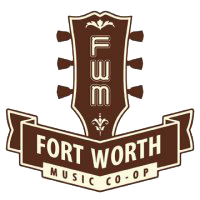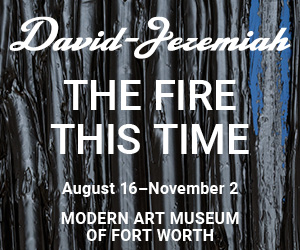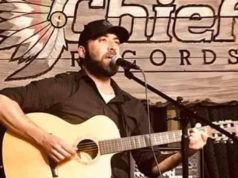Don’t underestimate the importance of quality control. Running a venue, dancing in a ballet company, curating a gallery, being in a band, publishing a free alt-weekly –– someone with experience needs to be nearby to say, “That’s great,” “That sucks,” or “That’s fine, but it needs some work.”
 One of the problems inherent to a citizen-run organization is the nearly complete lack of quality control –– if everyone is welcome, no one can be rejected. As an artist/member-run booking agency and promotions outfit, Fort Worth Music Co-Op brings North Texas artists of varying degrees of quality to area stages. On the high end, the Co-Op was responsible for a recent show at Lola’s Saloon by the swamp-blues explosion of Dallas’ Oil Boom: just three guys –– a singer, drummer, and a badass old-school electric-blues guitarist –– and a lot of soul. On the low end … well, let’s just not say anything if there’s nothing nice to say.
One of the problems inherent to a citizen-run organization is the nearly complete lack of quality control –– if everyone is welcome, no one can be rejected. As an artist/member-run booking agency and promotions outfit, Fort Worth Music Co-Op brings North Texas artists of varying degrees of quality to area stages. On the high end, the Co-Op was responsible for a recent show at Lola’s Saloon by the swamp-blues explosion of Dallas’ Oil Boom: just three guys –– a singer, drummer, and a badass old-school electric-blues guitarist –– and a lot of soul. On the low end … well, let’s just not say anything if there’s nothing nice to say.
The Co-Op’s first compilation CD of North Texas artists is plagued by the same populist spirit that haunts the Co-Op shows. Of the 24 tracks, only about a third are exceptional. The rest suffer from amateurism or poor production quality. There also are tracks between exceptional and dreadful that are, maybe worst of all, boring.
What’s curious is that even some boring tracks are easier on the ears than the failures. One prime example is My Wooden Leg’s contribution. The bare-bones, gypsy-fied “Lullaby” just kind of wafts by. The melody sways, and keeps swaying, and the song’s structure is monochromatic. However, frontman Michael Maftean is a consummate pro, and as a consummate pro, he sounds good, believable, genuine. He really means what he’s singing and playing. Not a single note is false. The song may ultimately be forgettable, but since Maftean is such a pro, he makes everything go down smooth.
Nothing in “Lullaby” jabs you in the ear and says, “I’m fake,” a statement that comes through loud and clear on Albatross’ contribution. You don’t need to conduct a background check to discover that the Albatross dudes are super-young and inexperienced at their instruments (or that the My Wooden Leg guys have been around for a while). “Two-Hit Jimmy” is a pretty toothless call-and-response between a simplistic riff and some verses sung in high pop-punk style. The upshot is that the guitarist’s velvet-chainsaw tone is as close to Bad Company-era Mick Ralphs’ as you may have ever heard. And that’s a good thing. A real good thing.
“Fake” is probably the heaviest pejorative you can lay on a song (or a painting or a ballet or a whatever). Anyone with a good ear can tell when someone’s trying to be something that he or she isn’t. And in young Fort Worth, a lot of musicians are going for that disaffected, careless effect, hammering home that calculated irony ’til their fists bleed. To be able to pull off disaffectedness, you have to be authentically disaffected, which doesn’t mean that you have to be Jim Morrison or Kurt Cobain. Hell, you don’t even need to play your instrument properly. (See: Jandek, “Skip” Spence, The Legendary Stardust Cowboy.) All you need to be able to do is tap into your thoughts, to really pause and think about the intellectual, emotional sensations bouncing off and all around you, and articulate what you’re thinking –– and feeling –– some way. Some people write. Some people paint. Some people play guitar and sing.
Which brings us to The Skeeves’ contribution, “Dancing Gravedigger.” There’s a lot to like about them. They aren’t afraid of stretching, of trying out new things, of blending genres. But the song, a midtempo stomp in toe-shoes, borders on artless dissonance and sterility. Beneath a walking beat, twin fuzzed-out guitars echo each other noisily, and the singer, who must have recorded his performance over a pay phone, offers mostly rhyme-less verses in an artificial monotone. “Dancing Gravedigger” is full of tangents but no theme.
There’s also a lot to like about Great American Novel. Fronted by celebrated local photorealist painter James Lassen, the trio isn’t afraid to get loud and sloppy. “Generation Next” is anchored by a head-banging, twangy guitar riff, but Lassen seems to be trying to hard to project angst –– he often hiccups his words as if he were Dylan on crank, which is hardly easy on the ears. A cool, John Doe-ish baritone might suit the material better, offering some balance.
One comp CD contributor leaves no doubt that he’s in total control. On “Start Again,” singer-songwriter D. Anson Brody embodies soul, and we’re not talking the panty-droppin’ kind. We mean a-higher-power-is-at-work variety. Brody’s technique, from his tapping-heavy acoustic guitar playing to his thunderous, expressive singing, is flawless, as if he popped out of the womb playing guitar and singing. Listening to him, you might feel as if he could play and sing just about anything, cover or original, pop or opera, and you would still be entranced. And you can’t argue with Brody’s neo-hippie message –– “This body is not your machine to make money!” he sings/shouts. “I was put on this Earth to love everybody.” Amen, brother.
Luke Wade also delivers the goods, as always. The young everyguy singer-songwriter is on the less aggressive side of soul, Marvin Gaye to Brody’s Mitch Ryder. And Wade couldn’t care less about the Age of Aquarius. In fact, he is often, well, pretty moody –– though in the most mellifluous, most lyrically naked ways. His contribution, “Quiet as You Can,” the disc’s closer, finds Wade at his steamiest, crooning about an encounter of a sexual nature over a slow, smoldering beat. The song eventually achieves liftoff, exploding into a Quiet Storm reverie, full of Wade’s diggin’-down-deep falsetto and some sexy horns. During the song’s dénouement, you can practically see Wade basking in the afterglow.
The CD also includes exceptional tuneage from the indie-psychedelic Cush, R&B hip-hopper Dru B Shinin’, proto-punks Perdition, and defunct indie-rockers Eaton Lake Tonics.
More than 75 submissions were made, and they were whittled down by a small group of Co-Op higher-ups. No one really knows the intent of the CD other than maybe to showcase Co-Op members’ music, which is fine and dandy. The Co-Op has a lot to be proud of, though it has a long way to go to be wholly integrated into the scene and begin to exert influence. Now a note from your resident quality-control expert: The CD is a good start. The next one should be –– will be –– better.
The Fort Worth Music Co-Op Compilation CD is available via www.fwmusiccoop.com and at Co-Op contributors’ shows. All proceeds will benefit the organization’s mission to unify and promote the 817 music scene.











